Israel fumes at Belgium decision to label products from settlements in occupied territories
Belgium has decided to label products made in illegal Israeli settlements in the occupied Palestinian territories, sparking outcry in Tel Aviv.
Belgium on Wednesday announced that it plans to label products made in the West Bank, citing Brussels’ desire "to ensure human rights in the West Bank.”
The European Union in 2015 provided all member countries with guidelines to start labeling products from Israeli settlements, stating that such products could not be dubbed "Made in Israel."
The EU guidelines stated that labels on Israeli settlement products sold in EU countries should clearly state that they come from Israeli settlements.
However, the Israeli media reports say, very few countries implemented the order at the time.
The Belgian decision has drawn condemnation from Tel Aviv, with Israel's foreign ministry calling it “anti-Israeli,” claiming it “harms Israelis and Palestinians alike.”
Israeli deputy foreign minister Idan Roll, who is currently in Brussels, also canceled all scheduled meetings with Belgian officials and lawmakers.
According to Israeli media reports, the Belgian government also said that any future agreement with Israel must include a special clause stating that the deal is not valid in the West Bank and east al-Quds.
It also said it would investigate the possibility of boycotting products from the West Bank altogether.
The Belgian move comes as the EU has repeatedly condemned the Israeli policy of settlement expansion.
On Tuesday, an EU delegation to the West Bank and Gaza Strip voiced strong opposition to Israel's settlement expansion policy.
The EU will not recognize any changes to the pre-1967 borders, including with regard to al-Quds, other than those agreed by both sides, the EU diplomats said.
The EU will not recognize any changes to the pre-1967 borders, including with regard to al-Quds, other than those agreed by both sides, the EU diplomats said during the visit,.
The diplomats were quoted as saying that "settlements are illegal under international law,” and that their countries "will not recognize any changes to the pre-1967 borders, including with regard to Jerusalem (al-Quds) , other than those agreed by the parties."
More than 600,000 Israelis live in over 230 settlements built since the 1967 occupation of the Palestinian territories of the West Bank, including East al-Quds. All the settlements are illegal under international law. The United Nations Security Council has condemned the settlement activities in several resolutions.
Palestinians want the West Bank as part of a future independent Palestinian state, with East al-Quds as its capital. The last round of Israeli-Palestinian talks collapsed in 2014. Among the major sticking points in those negotiations was Israel’s continued settlement expansion.
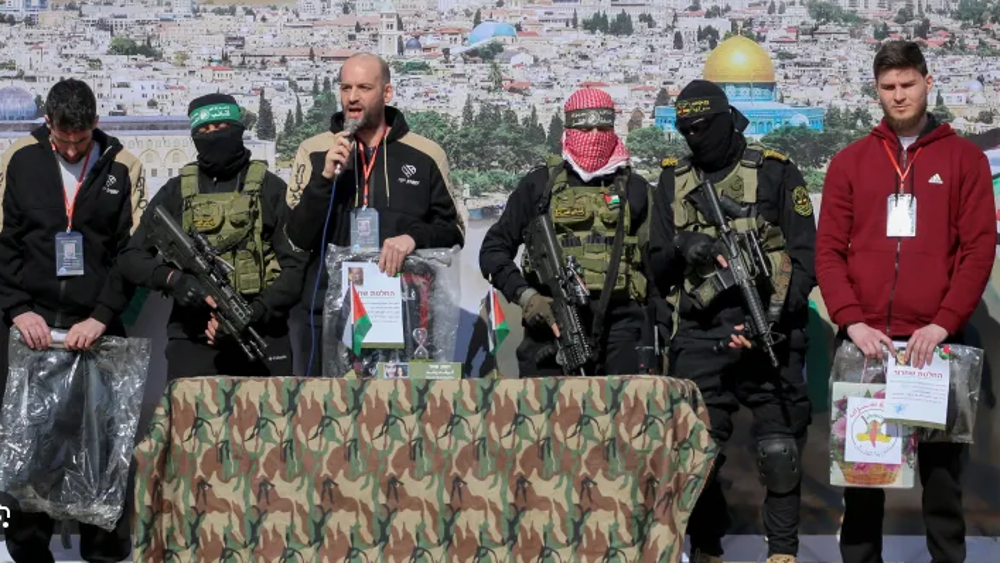
Hamas says ready to free all Israeli captives at once in phase two of truce
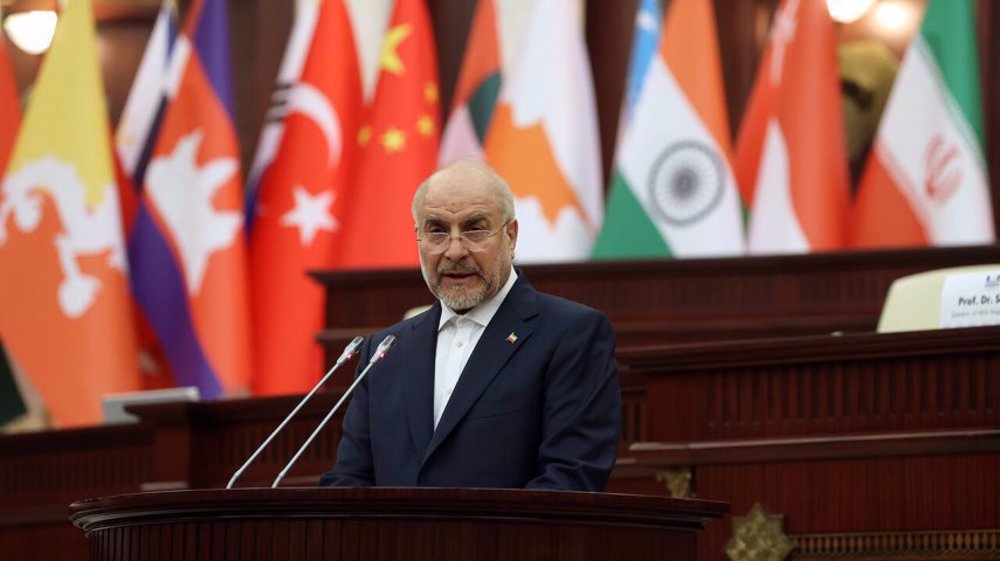
‘Colonial powers’ have no right to determine fate of Palestine: Qalibaf
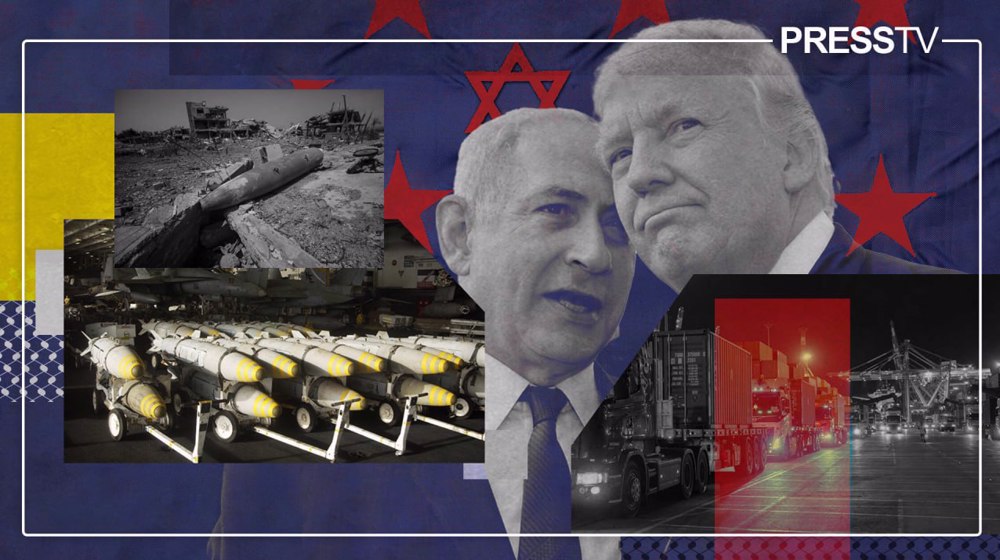
Explainer: Why are MK-84 2,000-lb bombs approved by Trump for Israel so deadly?
Hamas says ready to free all Israeli captives at once in phase two of truce
Israel kills one, injures two in southern Lebanon: Media
‘Colonial powers’ have no right to determine fate of Palestine: Qalibaf
Explainer: Why are MK-84 2,000-lb bombs approved by Trump for Israel so deadly?
President Pezeshkian: Iran, Qatar opening new avenues for cooperation
VIDEO | Displaced return home despite destruction
IRGC unveils new homegrown smart missiles, drones drill
Iran launches project to extract, purify helium from natural gas


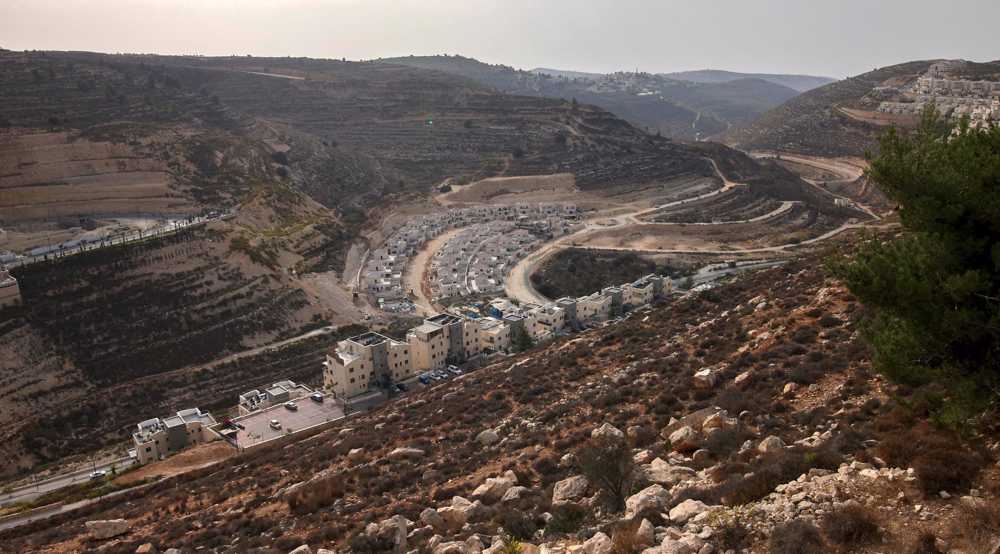
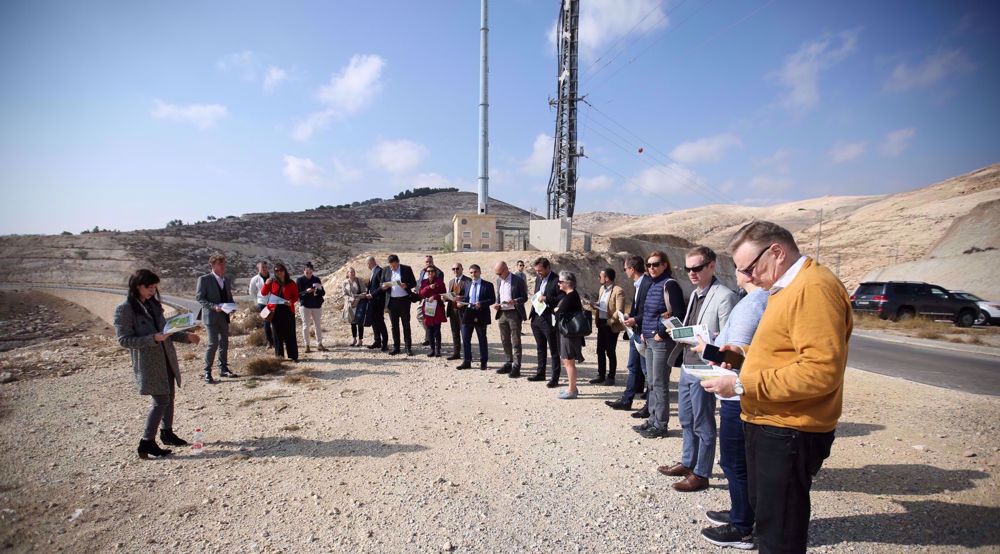





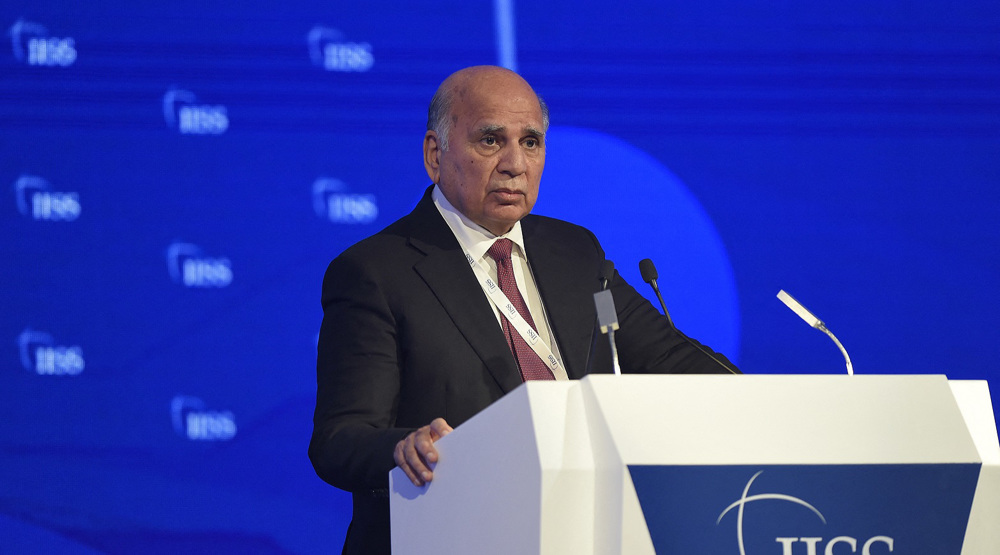

 This makes it easy to access the Press TV website
This makes it easy to access the Press TV website